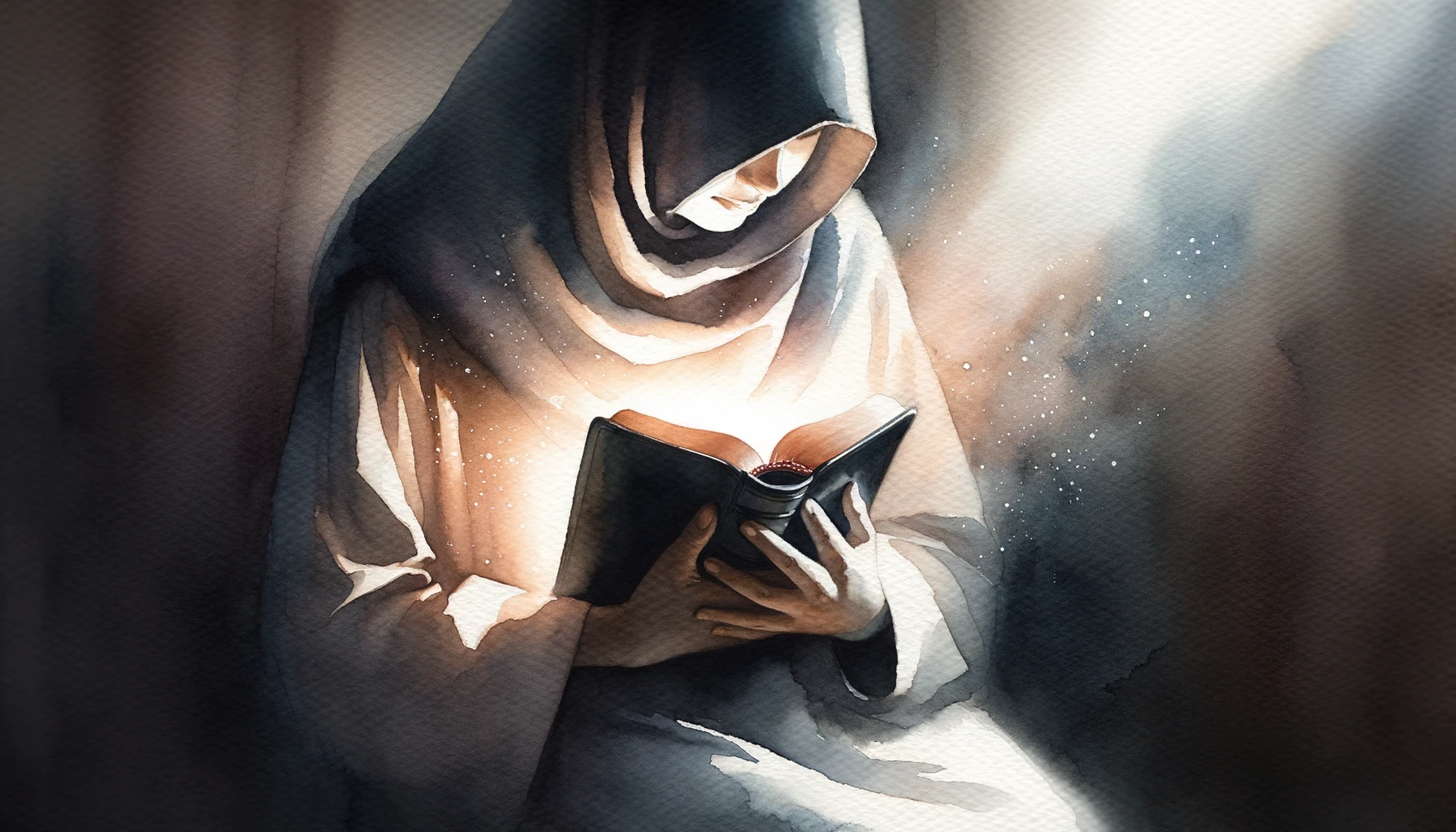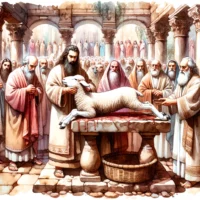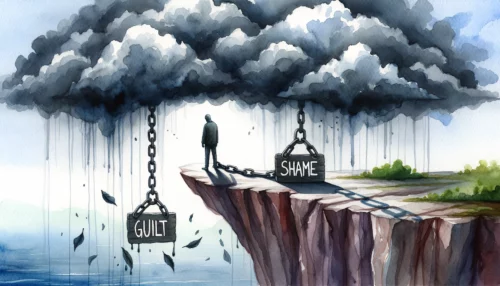In the stillness of a heartache, we often find ourselves grappling with questions, uncertainties, and fears. Our faith becomes our anchor, our hope, the beacon in our darkest hour. Drawing from the wellspring of Biblical wisdom, we strive to understand and navigate the journey through grief and loss, bolstered by the unwavering promise of God’s unfailing love and grace.
Understanding Grief and Loss: A Biblical Perspective
When we experience grief and loss, our hearts shatter into pieces. It’s as if a storm has taken residence within us, threatening to uproot everything we hold dear. The Bible doesn’t shy away from acknowledging this reality. In fact, it offers us a profound understanding of grief and loss, affirming our pain and our struggle.
One of the most powerful expressions of grief in the Bible is found in the book of Job. Job, a man of deep faith, faced unimaginable loss and suffering. His wealth, his children, and his health were stripped away, leaving him in a place of deep despair. Yet, throughout his suffering, Job never ceased to dialogue with God, pouring out his agony, his questions, and his confusion (Job 1-3). This shows us that it’s okay to bring our grief before God, no matter how raw or overwhelming it may be.
In the Psalms, we find another rich source of understanding. Many of these songs are laments, expressions of deep sorrow and longing for God’s intervention. The Psalmists openly express their grief, asking God why they are suffering and when relief will come (Psalms 13, 22). They model for us the courage to wrestle with God in our pain, assuring us that He is big enough to handle our deepest sorrows.
In the New Testament, Jesus Himself experiences grief. At the death of His friend Lazarus, Jesus weeps openly (John 11:35). His tears are a testament to the very real pain that comes with loss. His grief not only validates our own but also assures us that God is intimately acquainted with our suffering.
The Bible’s portrayal of grief and loss is grounded in reality. It doesn’t offer us platitudes or easy answers. Instead, it invites us into an honest dialogue with God, where we can pour out our hearts and be met with compassion, love, and understanding.
Through the Biblical narrative, we find that grief and loss are not signs of a lack of faith or a failure on our part. They are a part of our human experience in a fallen world. What shines through these narratives is the reality that, even in our darkest moments, we are never alone. God is with us in our pain, intimately acquainted with our suffering, and ever ready to offer His compassion and comfort. This understanding can serve as a foundation as we explore how faith and hope can guide us through our journey of grief.
Faith: Our Anchor in the Midst of Storms
In the tumultuous seas of grief and loss, faith can serve as our anchor, holding us steady amidst the crashing waves. The Bible beautifully illuminates this concept, offering us a view of faith that is robust, enduring, and deeply reassuring.
In the New Testament, faith is described as the assurance of things hoped for, the conviction of things not seen (Hebrews 11:1). It’s not a blind leap into the dark, but a confident trust in the character and promises of God. It’s this trust that can steady us when our world seems to be falling apart.
Consider the faith of Abraham. Despite the seeming impossibility of God’s promise to make him a father of many nations, Abraham believed. He held fast to God’s promise, even when circumstances appeared to contradict it (Romans 4:18-21). His faith was not based on his circumstances, but on his trust in God’s faithfulness.
In the life of Jesus, we see faith in action. When faced with the cross, Jesus chose to submit to the Father’s will, trusting in His plan and purpose (Luke 22:42). His faith enabled him to endure the cross, secure in the knowledge that God was at work, even in His suffering.
But what does this mean for us, especially when we’re navigating the stormy seas of grief and loss? It means that our faith, our trust in God, can anchor us. We can believe in God’s goodness, even when we can’t see it. We can trust in His love, even when we feel overwhelmed by our pain. We can rest in His promises, knowing that He is faithful to fulfill them.
Faith is not a magic solution that instantly removes our pain. Rather, it’s a deep-rooted trust that God is with us in our pain, that He loves us, and that He is working for our ultimate good, even in the midst of our suffering (Romans 8:28).
Faith is our anchor, providing stability and security in the turbulent waters of grief and loss. It doesn’t negate the reality of our pain, but it helps us navigate it with resilience and courage. It reminds us of God’s unchanging character, His unwavering love, and His faithful promises. This understanding of faith can bring comfort and strength as we journey through the valleys of grief, bolstered by the assurance of God’s presence and His unchanging nature.
Hope: The Beacon in our Darkest Hour
In the dense fog of grief and loss, hope can serve as a beacon, guiding us towards healing and restoration. The Bible presents hope not as wishful thinking, but as a confident expectation based on the promises of God.
In the Old Testament, hope is often linked to God’s covenant promises. For instance, the people of Israel placed their hope in God’s promise to deliver them from Egypt and lead them into the Promised Land (Exodus 3:7-8). This hope wasn’t based on their circumstances, which were dire, but on the reliability of God’s promises.
In the New Testament, hope takes on an even deeper dimension. The resurrection of Jesus Christ embodies the ultimate hope for Christians. Because Jesus conquered death, we have a living hope that extends beyond this life, a hope in the resurrection, eternal life, and the fulfillment of God’s Kingdom (1 Peter 1:3-4).
But what does this look like in the face of grief and loss? It means that while we mourn, we do not mourn without hope (1 Thessalonians 4:13). We grieve, yes, but in our grief, we hold on to the hope that God will wipe away every tear, that death will be swallowed up in victory, and that all things will be made new (Revelation 21:4).
This hope does not minimize our grief. Rather, it coexists with our grief. It allows us to weep and to mourn, all the while holding onto the promise of healing and restoration. Hope reminds us that our present suffering is not the end of the story. It reassures us that despite the pain and loss we experience in this life, we have a confident expectation of a future where every tear will be dried, and sorrow and pain will be no more.
Hope is our beacon in the darkness of grief and loss. It doesn’t promise an easy journey or a quick resolution, but it does promise that the darkness will not have the last word. Grounded in the promises of God, this hope can light our path, providing direction and comfort as we navigate the challenging terrain of grief. Through this understanding of hope, we can find the strength to continue our journey, reassured of God’s healing, His restoration, and His unending love.
Finding Light in the Shadow of Loss
In the journey through grief and loss, we have seen how faith and hope, rooted in the truths of the Bible, can guide us. They do not eliminate the pain, but they provide stability, direction, and a promise of ultimate healing and restoration. As we walk this path, let’s consider these questions:
- How can understanding grief and loss from a Biblical perspective influence the way you process your own pain?
- How might your faith serve as an anchor, providing stability in the midst of your grief?
- In what ways can hope act as a beacon, guiding you towards healing and restoration?
In our darkest hours, the light of God’s love and promises breaks through. It reminds us that we are not alone. Our pain is seen, our tears are counted, and our cries are heard. Though the night may be long, the dawn will break. In the embrace of faith and the illumination of hope, let us journey onward, confident in God’s unending love and His promise to make all things new.














